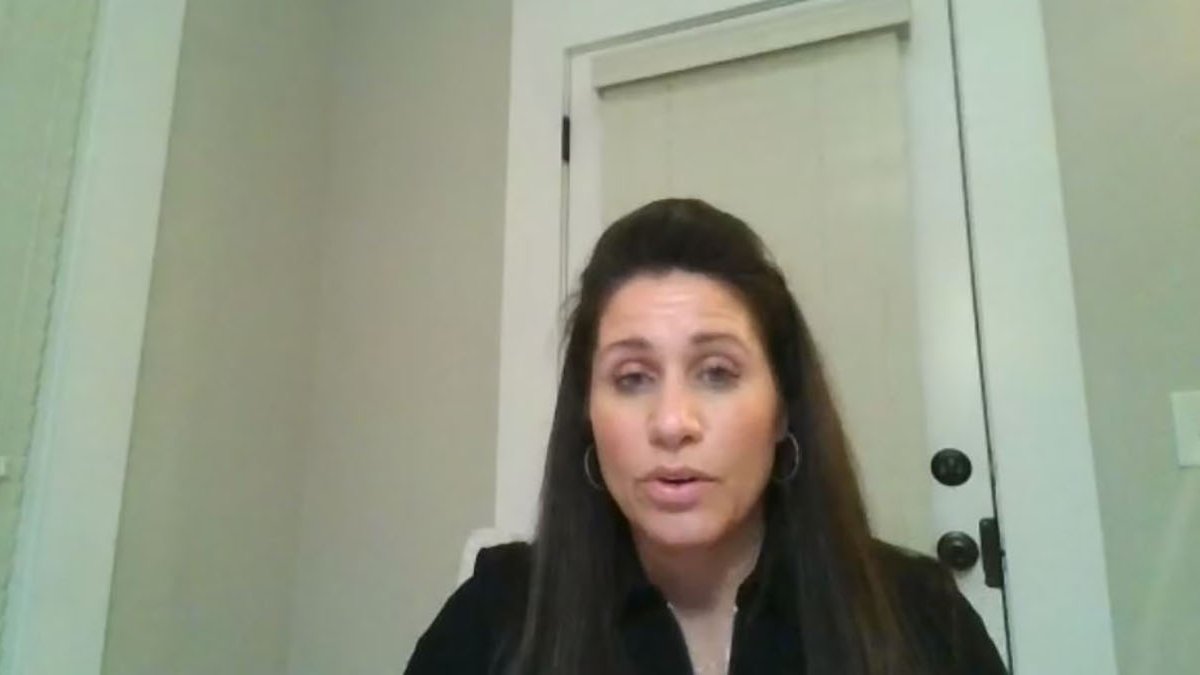Exercise Science student learned work-life balance lessons through experience

Sanam Bezanson remembers with clarity the moment that caused her to redirect her professional path. At the time, she says she was working on renovating a house as part of the small real estate business she owned and operated.
“I was scraping wallpaper, the air was dusty, and I had dirt in my hair. And I remember thinking, ‘Is this my mission in life?’’’ Bezanson said.
That moment of reflection eventually led the 37-year-old wife and mother of three to return to school and pursue her dream of going to medical school. Bezanson will graduate from the KU Edwards Campus in May with a Bachelor of Exercise Science degree in exercise physiology. Bezanson’s experience and drive to pursue her goals helped her learn the value of work-life balance and presence, which she discussed in her TEDx KU Edwards Campus talk, titled “Living Between Your Vices.”
Bezanson explored the concepts of ambition and balance through the lens of Aristotle’s idea of vices and virtues. Aristotle defines vices as extremes of deficiency and excess. Virtues, which we learn primarily through habit and practice, helps us to have the appropriate attitude toward unpleasant and pleasant feelings — for instance, recognizing that hard work is required to achieve your goals, but shouldn’t be pursued at the cost of important personal relationships or mental and physical health.
“Ambition toward success is commonly seen as a virtue in our society, but this virtue can transform itself into a vice of destruction if the balance of the extremes is not enacted,” Bezanson said in her talk. “We’re overwhelmed by a rat race to excel towards a destination, and our journey lacks equilibrium.”
As a nontraditional college student working toward her degree during a pandemic, Bezanson said she’s felt that stress frequently, and she’s not alone. “Burnout rates in corporate America, attrition rates in universities and rising mental illness can often be tracked back to the idea that only the destination, not the path, matters,” Bezanson said.
The appropriate way forward, Bezanson said, is to find the appropriate pace that will allow you to stay on track without overworking yourself, and to not get discouraged or abandon your goals if you’re concerned that your efforts won’t be good enough. Bezanson said a meeting with a mentor helped her realize that she needed to seek a more reasonable work ethic for herself.
“He told me, ‘I’ve been where you’re going at the rate that you’re going. You have an opportunity to enjoy this journey. Don’t rush so much in one direction that not only you but others start to resent it,’” Bezanson said. “Regret can overshadow success when it’s pursued at all costs.”
Bezanson, who has been accepted to medical school in the fall, said that with the help of important people and experiences in her life, she’s been able to recognize her long-term desires for herself and pursue them in a way that allows her to enjoy the journey.
“I’m still in pursuit of my goals, but I have clarity and balance,” Bezanson said. “Does it look the way I thought it was supposed to look? No. Has it been easy? No. But is it sustainable? Yes. True success exists in the peace with the ability to recognize our vices, to identify those thresholds, to say no not yet, or it’s not too late.”
Are you interested in pursuing a health care or wellness career on a schedule that fits your needs? Check out KU’s online and on-campus undergraduate exercise science programs at the Edwards Campus in Overland Park.





